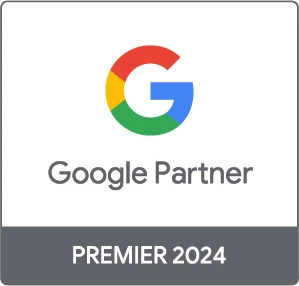Enterprise SEO – The Case Study of Pinterest
Search Engine Optimisation (SEO) for a local business or a small medium enterprise in most markets comes down to the expertise of the SEO expert. Bust mostly its a matter or effort: If you know what you’re doing, and actually throw the needed resources on it, the results will come.
But even when the desired Google Search positions become a reality and the juicy organic traffic starts flowing in, the actual success only comes when SEO stops functioning as an independent series of tasks, but becomes integrated with the rest of marketing and operations as a whole. SEO can make wonders for modern businesses given they are given a seat at the decision-makers table.
SEOs are disruptors by definition. If they don’t operate proactively it’s probably too late already.
Enterprise SEO – That’s another beast
Search Engine Optimisation (SEO) for enterprises is a huge growth opportunity. And as times and times again, SEO is back in fashion. Perhaps because it is being gradually demystified, given Google’s relative consistency on communicating the importance of unique and quality content.
But when the websites become “larger”, the functionalities more complex, when new digital assets are created for subsidiaries or product lines and in so many other cases, SEO becomes a whole other beast.
And that is what we like to call enterprise SEO, or just BIG SEO.
The case study of Pinterest SEO
Your Design / Shutterstock.com
Pinterest, women’s and shopaholics’ favourite social network, quickly realised traditional SEO 101 manuscript would not suffice to increase its organic traffic growth goals. Instead, Pinterest internally opted for running a large number of experiments to understand which tactics worked for them.
Duplicate Page Title tags? No problem
Even though having a large number of duplicate page title tags is definitely not a good practice in the eyes of Google, in Pinterest’s case that proved to not be an issue. Here’s what happened:
Many Pinterest users create boards with exactly the same name, resulting in identical Page Title tags in the form of:
“{Board Name} on Pinterest”.
In a SEO experiment, Pinterest added the number of pins in those boards next to their names. Resulting in a Page Title Tag:
{Board Name} on Pinterest | {Number of Pins}
Through this experiment Pinterest found there was no statistical significant change in traffic (between the test and the control group).
Text Descriptions? I’d like some of that
Pinterest did find a huge growth opportunity though via organic traffic. After experimenting with improving text descriptions Pinterest saw results much better than anticipated; invested further into it and saw a nearly 30% increase in traffic only last year.
Good (SEO) things gone bad
Maybe the most important thing decision-makers can take from Pinterest’s Growth Team engineers’ experience is that even un-related actions have to take SEO into consideration.
An experiment on Pinterest had the purpose of delivering a better web performance and making sure the implemented changes did not affect SEO. In fact, the changes did impact SEO negatively (!) and the team was late to turn off the experiment.
Still, having tested such a change (rendering with JavaScript) was a huge success “in the sense that it prevented a terrible traffic drop without a known cause. […] we learned the importance of running experiments for non-SEO projects to prove that they aren’t negatively affecting SEO”, in the words of Julie Ahn, Software Engineer on Pinterest’s Growth Team.
How’s all that affecting my website’s SEO?
Enterprise SEO is the ultimate manifestation of SEO being a very different beast depending on the project at stake.
Basic guidelines and best practices have always been there. But the SEO landscape becomes more competitive and achieving results will always, more or less, require outside-the-box thinking and acting. Pinterest’s case study proves how complex and how different a SEO project can become.
If you’d like to read more on Pinterest’s experience with SEO, take a look at their engineering blog.







